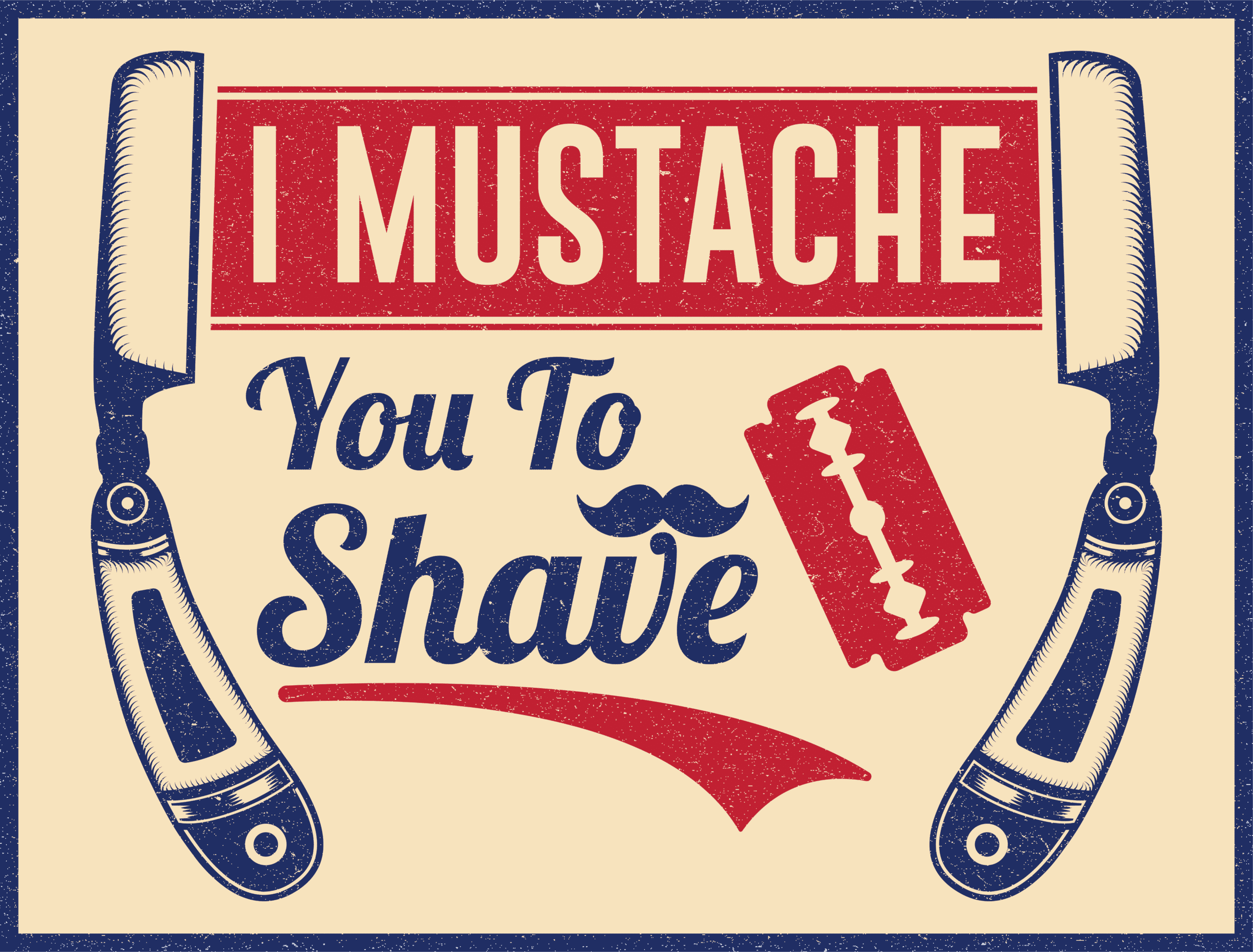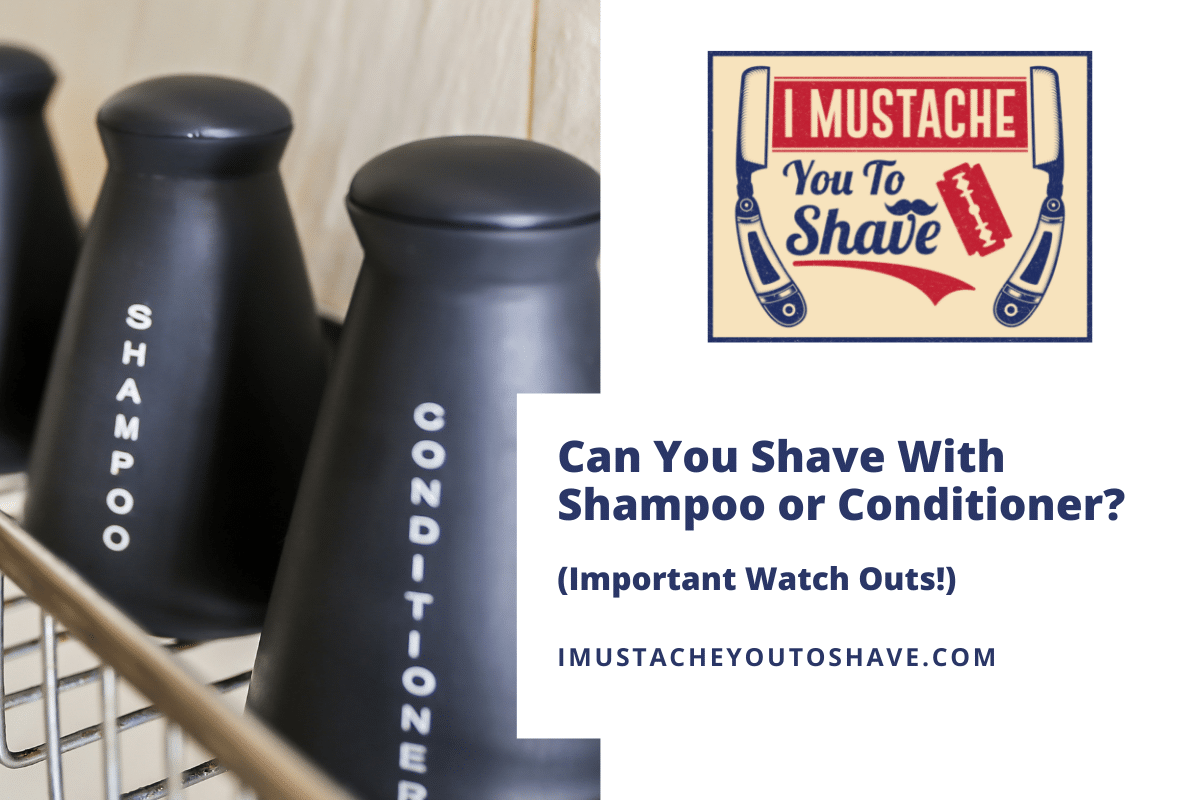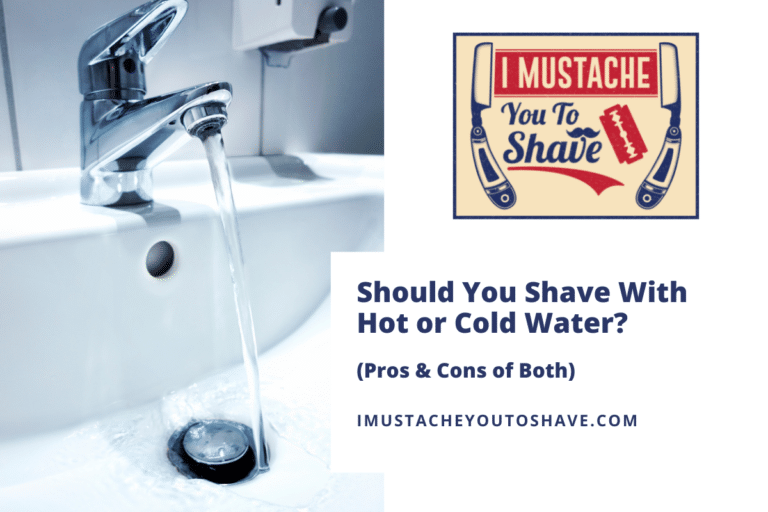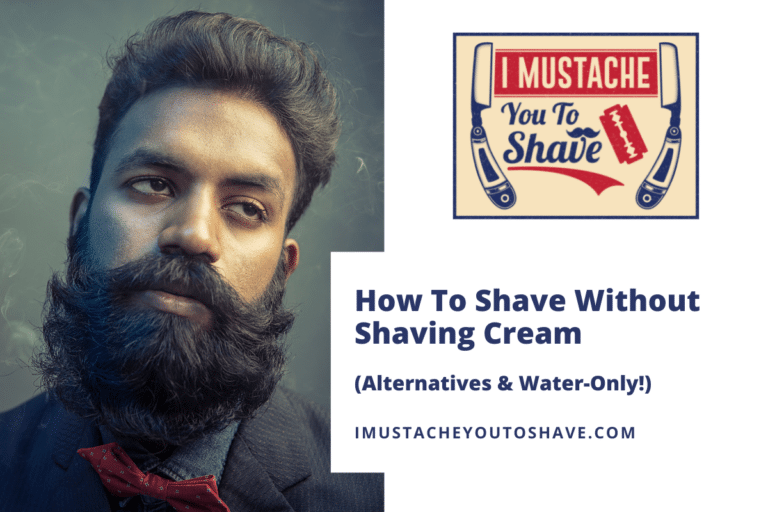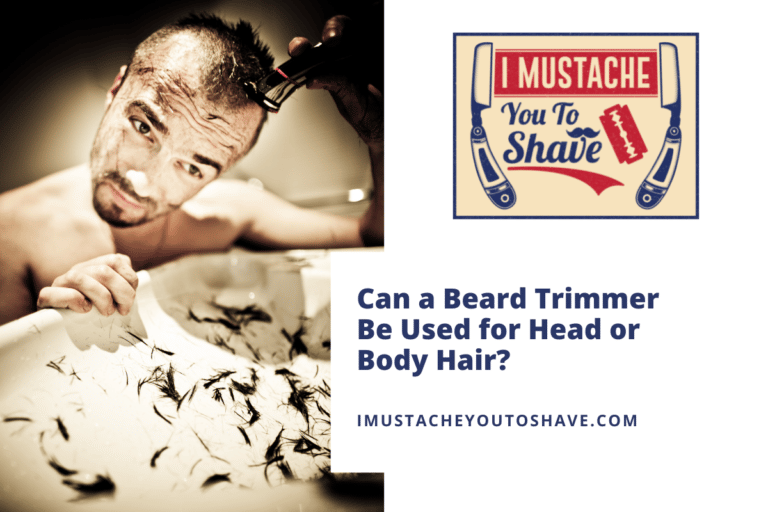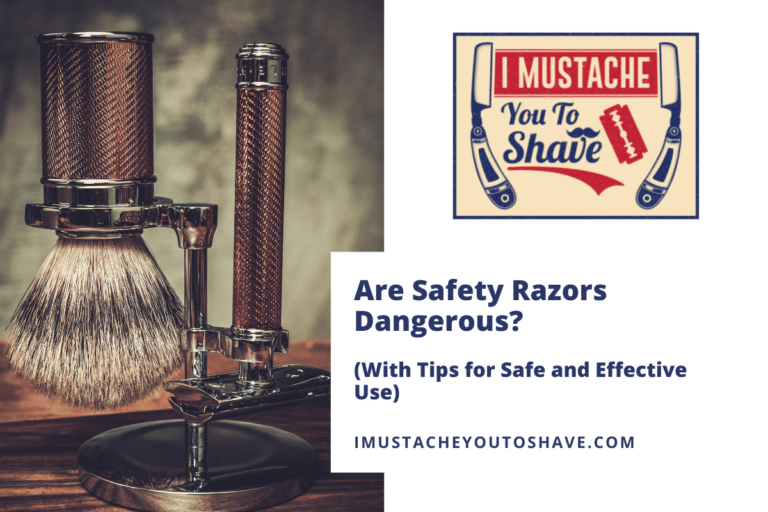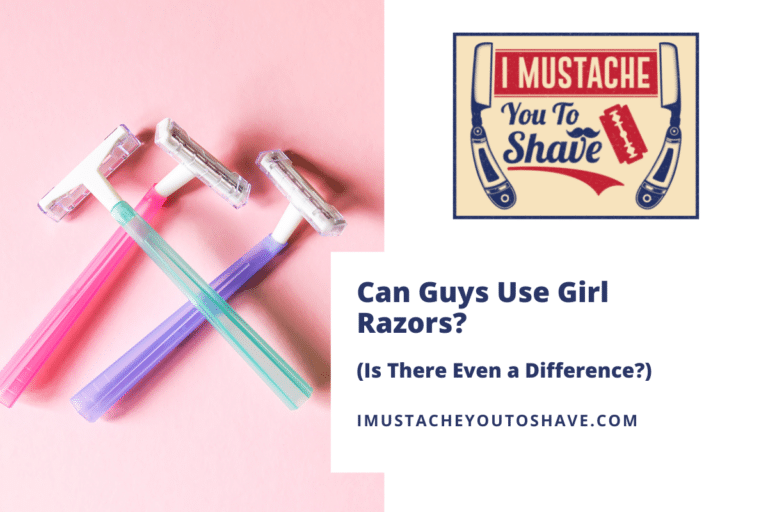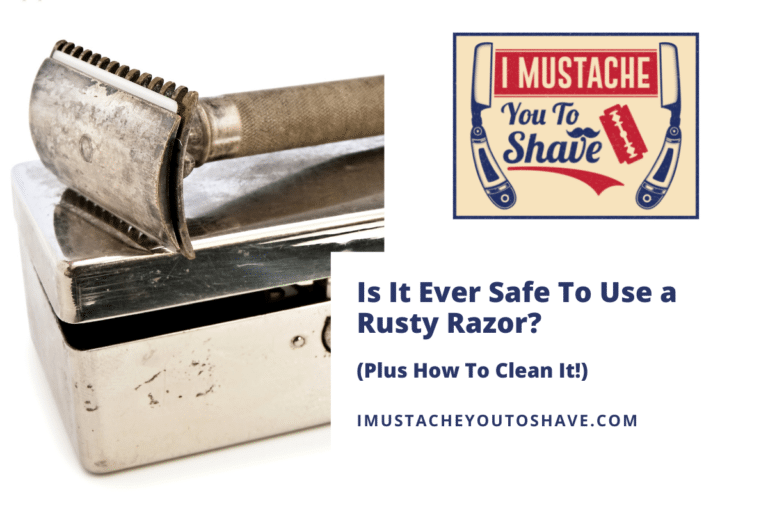Can You Shave With Shampoo or Conditioner? (Important Watch Outs!)
When you are shaving in the shower, it is tempting to reach for the shampoo or conditioner as an alternative to shaving soap. Shampoos lather and conditioners soften so they should work just as well as shaving products, right?
Technically, you can shave with shampoo or conditioner but that doesn’t mean they are the best choices for your skin. Shampoos and conditioners are often filled with ingredients that can irritate the skin. They are also missing some of the important features and benefits that shaving soaps provide.
Let’s take a look at the ingredients shampoos and conditioners contain, as well as some important things to watch out for!
Is it okay to use shampoo or conditioner to shave?
Finding grooming products that do double-duty can be an attractive, money-saving advantage. You’ve already purchased shampoo and conditioner, so why not use these products as an alternative to shaving soap?
It is not recommended that you use shampoo or conditioner to shave as they can prevent you from getting the closest shave possible. Choosing products formulated specifically for hair on the head and scalp can also cause adverse effects on your face.
Let’s dive deep into the shampoo and conditioner bottles and find out why they aren’t the best choices for your shave.
Using shampoo to shave your face
Before we discuss shampoo ingredients, we will focus on the purpose of shaving soap. Shaving soap provides a stable lather that can last throughout an entire shave. This stable lather is created by high stearic acid fats and oils. These oils also create a “slickness” to the skin so the razor can glide across easily. Shaving soaps also include hydrating and nourishing ingredients to prevent dryness and irritation.
On the other hand, shampoo’s purpose is to clean the hair and scalp. Synthetic detergents are the primary cleaning agents. They are designed to remove sebum, sweat, and dirt. These cleaning ingredients do not aid in shaving.
The harsh detergents used for cleaning can leave hair dry and unmanageable. Because of this, many other ingredients are added to shampoo to soften, de-frizz, and smooth the hair.
Fun Fact: The English word “shampoo” was derived from the Hindi word “champoo” which meant to clean through the process of massage.
Ingredients
According to a study in the Journal of the German Society of Dermatology, shampoos can contain 10-30 ingredients.
Shampoo ingredients are made up of surfactants, preservatives, and fragrances. Many of these ingredients are controversial because they can cause irritation, toxicity, and have even been linked to cancers.
Surfactants are the cleansing detergents in shampoos. On the ingredients list, they are often referred to as sodium lauryl or laureth sulfates. These detergents can be irritating, especially to sensitive skin. They are also known to harm aquatic life due to waste runoff.
Preservatives are used in shampoos to increase shelf-life by preventing mold and bacteria. They include parabens, DMDM, and many other names that are hard to pronounce. Many of these additives have been linked to breast cancer and some even release formaldehyde.
Fragrances make shampoo smell great, but these additives contain phthalates that can disrupt hormones and cause reproductive issues, and then can also be irritating if used on the more sensitive skin of the face.
Shaving soaps typically contain minimum natural ingredients such as high stearic acid fats/oils for stability and slickness, humectants like goat’s milk, and moisturizing agents like vitamin E and cocoa butter.
Potential watch-outs
If you do choose to use shampoo to shave your face, be on the lookout for the following potential problems:
- Unstable lather
- Lack of slickness
- Dry skin after the shave
- Skin irritation such as razor burn or ingrown hairs
- Build up on razor decreasing closeness of the shave
Using conditioner to shave your face
Up until the 20th century, conditioning one’s hair was dependent on natural hair oils. At the 1900 Paris World Fair, French perfumer, Edouard Pinaud, released the first hair conditioner sold under the name Brilliantine. It was used to soften men’s beards and mustaches. Today, conditioners are used regularly to replace the moisture shampoos strip away.
The main function of a hair conditioner is to synthetically replace the sebum removed by shampoo. Conditioners also smooth and soften hair while making it easier to style and manage. While conditioner would be a better choice than shampoo for shaving your face, it is not superior to shaving soap.
Hair conditioners are used for a myriad of hair concerns like frizz, detangling, and shine. Facial hair doesn’t need the extra additives needed to alleviate these concerns.
Ingredients
According to the Environmental Working Group, hundreds of conditioners are included on the toxic ingredient offender list.
Conditioners do soften hair, but they still contain many of the same concerning ingredients shampoos do. They also add synthetic oils and emulsifiers which help the oil and water in conditioners mix. Cheaper emulsifiers save money but can cause issues. Some studies have found that this ingredient can be a bigger skin irritant than surfactants and fragrances.
Synthetic oils add moisture and are often in the form of silicones. These ingredients help replace the sebum that was removed from the hair with the shampooing process. They coat the hair and leave it smoother. The European Union considers many of these endocrine and reproductive disruptors based on laboratory studies.
Shaving soap provides the right amount of slickness to get a close shave without synthetic oils and unneeded ingredients.
Potential watch-outs
If you do choose to use conditioner to shave your face, here are some important things to watch out for:
- Increase in facial oil and shine
- Clogged pores
- Difficulty removing all of the conditioner residue
While shaving with shampoo or conditioner is always an option, choosing a soap designed specifically for shaving is the best choice. Your face will thank you!
